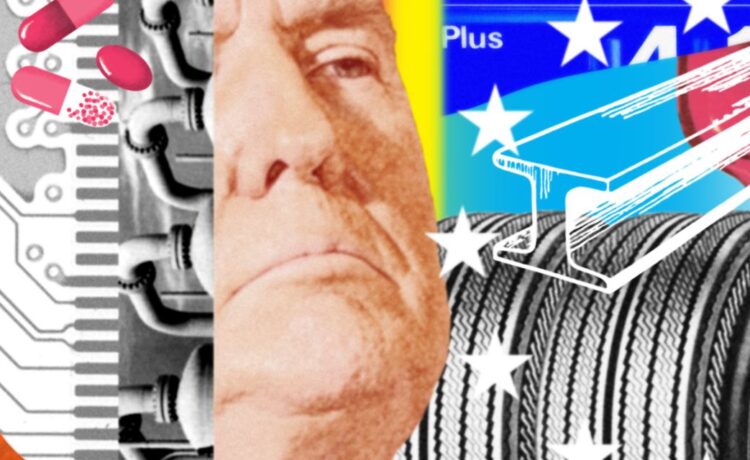The trade war is coming for two of the biggest names in the semiconductor industry—and that’s unnerving markets.
Nvidia, the third-largest U.S. company by market value, warned late Tuesday that it will take a $5.5 billion charge after the U.S. government said it will need a license to export its H20 processors to China and other countries. These less-powerful AI chips had been designed to comply with American export controls.
Nvidia stock sank and ASML shares fell in Amsterdam. The moves rippled across global markets, with Nasdaq-100 futures losing more than 1%. Major indexes in Europe and Asia also declined.
Global stock markets started this week on a steadier note, after President Trump’s tariff policies sparked haywire moves last week. Signs of anxiety re-emerged Wednesday: Wall Street’s fear gauge, the Cboe Volatility Index, jumped after falling for three trading days. The dollar, meanwhile, extended its stretch of weakness.
On Tuesday, Trump said Beijing needs to make a trade deal with the U.S., because China needs American consumers and their spending.
Beijing named a new top trade negotiator, a former ambassador to the World Trade Organization. And new data Wednesday showed China’s economy grew 5.4% in the first quarter from a year earlier, matching the pace of the previous quarter. Growth was partly driven by exports, which rocketed as U.S. importers raced to bring in orders ahead of anticipated new tariffs.
Later Wednesday, Federal Reserve Chair Jerome Powell is due to talk about the economic outlook. Data on retail sales is also due. That will measure activity in March, before Trump’s tariff blitz.

